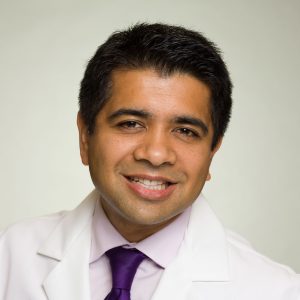
Balancing Service and Science: How Military Experience Shapes Dr. Avishek Kumar’s Approach to Cancer Care
For Avishek Kumar, MD, the journey into cancer care began with a deep family history of healthcare and took shape during his years of military
HIPAA Alert: Potential Data Breach Learn More
Questions on Oncology, Hematology and/or Infusion Clinical Services due to COVID-19 Crisis – CALL 833-698-1623
Important Information for Our Patients Regarding the Coronavirus.
RCCA Providing Area Cancer Patients with Access to Care During Coronavirus Outbreak
RCCA Offering Patients Virtual Visits During Coronavirus Pandemic
The world of cancer treatment is rapidly evolving. New therapies are being discovered, and existing ones have improved, resulting in better patient outcomes. Regional Cancer Care Associates (RCCA) is one of the nation’s largest networks of oncologists, with more than 100 cancer specialists providing lung cancer treatment in New Jersey, Connecticut, Massachusetts, and the Washington, D.C., area. Here, we provide an overview of the latest cutting-edge lung cancer therapies prescribed at our facilities.

Perhaps the best-known form of medical treatment for cancer is chemotherapy, which has been saving lives since its initial use in the 1940s. While the treatment modality has a long heritage, it also is the focus of ongoing research and innovation, with recent years seeing significant advances in terms of developing new chemotherapy agents and delivering long-established ones.
Chemotherapy medications can be taken by mouth or injected into the bloodstream. Those agents travel throughout the body to attack rapidly dividing cells, making chemotherapy effective for treating or controlling lung cancer that has metastasized (spread). However, chemotherapy may damage other non-cancerous cells, causing side effects that may include hair loss, weight loss, vulnerability to infection, easy bruising, and fatigue. Researchers continue to investigate ways to prevent side effects and minimize their impact when they do occur.
The role of chemotherapy in treating non-small cell lung cancer (NSCLC) depends in large part on the cancer’s stage. Not all patients will need chemotherapy, although it may be recommended in several situations, including:
Because chemotherapy can cause significant side effects, it often is not recommended for patients in poor health.
Chemotherapy is usually a component of the treatment plan for small cell lung cancer (SCLC). This is because SCLC spreads quickly and is often diagnosed when it is already in advanced stages. How chemotherapy is used typically depends on the stage:
As with NSCLC, chemotherapy is not often recommended for SCLC patients in poor health.
Targeted therapy is an innovative, relatively new approach to cancer treatment. Targeted therapy drugs work by interfering with or inhibiting specific cellular processes that drive the development and spread of cancer. This makes them more precise than traditional chemotherapy. Targeted drug therapies also travel through the bloodstream to work throughout the body. They attack cells with biomarkers specific to lung cancer, sparing healthy tissue so that patients generally experience fewer side effects than they may with chemotherapy.
Most targeted therapies can’t kill lung cancer by themselves. Instead, they are used to control growth. Oncologists often prescribe targeted therapies to manage advanced-stage or metastatic cancer, often while other treatments are also being administered to kill cancer cells directly. In addition, targeted therapies are typically only used for NSCLC. This is because SCLCs are genetically unstable and prone to diverse mutations, making it difficult to identify a targeted drug that will work.
As lung cancer tumors grow, they create new blood vessels to keep themselves supplied with oxygen and nutrients. This process is called angiogenesis. Angiogenesis inhibitors are targeted drugs that stop the formation of new blood vessels. This starves the tumor of nourishment, preventing new growth.
Because of the way angiogenesis inhibitors work, they may cause increased bleeding or issues with wound healing. As a result, they aren’t recommended for patients who are taking blood-thinning drugs.
About one in eight cases of NSCLC involves a specific change to the KRAS gene, called the KRAS G12C mutation. This mutation causes cancer cells to make abnormal KRAS proteins that help those cells grow and spread. KRAS inhibitors attach themselves to the abnormal protein. With the inhibitor attached, cancer cells can no longer use the protein to grow. This effectively stops cancer from spreading.
Epidermal growth factor receptor (EGFR) is a protein found on the surface of lung cells. Under normal circumstances, EGFR helps healthy cells grow and divide. However, some NSCLC cells feature a mutation that produces too much EGFR, making them grow faster. EGFR inhibitors block the signals from EGFR that tell cells to grow. When cancer cells do not receive these biochemical “instructions” to grow, they are less likely to spread.
Like other targeted drugs, EGFR inhibitors are often used to control late-stage lung cancer. They may also be used as an additional treatment after surgery for early-stage lung cancer. In this situation, they are often used in combination with chemotherapy.
Some NSCLC tumors have a mutation in a gene called ALK. The mutated gene produces an abnormal ALK protein that causes cell growth. ALK inhibitors attach themselves to the abnormal protein to interfere with cell growth. ALK inhibitors are often effective for:
A small percentage of NSCLC tumors have a mutation in a gene called ROS1, which can be targeted with a ROS1 inhibitor. Inhibitors for this gene sometimes also work for ALK genes. In addition, ROS1 mutations are most often seen in tumors that don’t have the ALK, KRAS, or EGFR mutations. This makes this medication an effective choice when many others may fail.
A minority of cases of NSCLC involve tumors with changes in the HER2 gene, which helps govern cell growth. HER2-inhibiting drugs attack cells with this change. The most frequently used HER2 inhibitors are produced with a lab-made antibody. The antibody is then linked to a chemotherapy drug. The antibody serves as a messenger that carries chemotherapy directly to the cancer cells.
HER2 mutations are also commonly found in breast cancer, making this treatment effective for both cancer types.
A wide variety of other gene and protein inhibitors may also be used in lung cancer treatment. Examples include:
Immunotherapy harnesses the power of a person’s own immune system to identify and fight cancer. Several immunotherapies play a role in treating lung cancer, including:
While immunotherapies typically are better tolerated than chemotherapy, they still can cause adverse effects, some of which can be significant. These include fatigue, rash, nausea, diarrhea, constipation, joint pain, and susceptibility to infection, as well as infusion reactions such as fever, chills, and trouble breathing.
While oncologists now have a wide variety of options for treating lung cancer, Researchers are developing even more therapies. To further this effort and to give our patients access to the latest advances in cancer care, RCCA offers access to clinical trials. These studies allow patients to participate in cutting-edge studies into new treatments that may save lives.
Regional Cancer Care Associates is committed to offering our patients the most advanced and effective lung cancer medications. We offer treatment at over 20 locations in New Jersey, Connecticut, Massachusetts, and the Washington, D.C., area, enabling patients to receive care close to home. Our experts specialize in a wide variety of cancer types and blood disorders. Contact us today to learn more about our targeted therapies and other treatment options for lung cancer.
For more information or to schedule an appointment,
call 844-346-7222. You can also schedule an appointment by calling the RCCA location nearest you.

For Avishek Kumar, MD, the journey into cancer care began with a deep family history of healthcare and took shape during his years of military

Physical therapy is well known for its role in helping patients recover from sports injuries, surgeries, and orthopedic conditions. Many people may not realize that

Colon cancer is often treated with surgery, which can have a long recovery period. When patients understand what to expect, they feel more confident about

Regional Cancer Care Associates is one of fewer than 200 medical practices in the country selected to participate in the Oncology Care Model (OCM); a recent Medicare initiative aimed at improving care coordination and access to and quality of care for Medicare beneficiaries undergoing chemotherapy treatment.